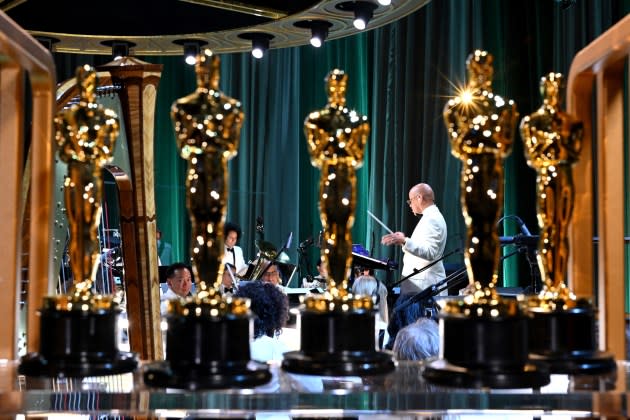New Rules For 2025 Oscars Affect Best Picture, Drive-Ins, Qualifying Metro Areas & More

The Academy of Motion Picture Arts and Sciences has revealed some rules changes for the 97th Annual Academy Awards next year. Among them are putting the brakes on the Covid-era rule about drive-ins as qualifying commercial venues and swapping one of the six qualifying U.S. metropolitan areas.
A number of tweaks approved by the Board of Governors affect the 2024-25 Best Picture race. To wit:
More from Deadline
Oscars 2025 Date & Timeline Set; Academy Sticks With Earlier Start Time
2024-25 Awards Season Calendar – Dates For Oscars, Tonys, Guilds, BAFTAs, Spirits & More
Expanded theatrical run of seven days, consecutive or non-consecutive, in 10 of the top 50 U.S. markets, no later than 45 days after the initial release in 2024.
For late-in-the-year films with expansions after January 10, 2025, distributors must submit release plans to the Academy for verification.
Release plans for late-in-the-year films must include a planned expanded theatrical run, as described above, to be completed no later than January 24, 2025.
Non-U.S. territory releases can count towards two of the 10 markets.
Qualifying non-U.S. markets include the top 15 international theatrical markets plus the home territory for the film.
Rule changes also affect the Animated Feature, International Feature Film, Original Score and Writing categories, along with the Governors Awards and Sci-Tech Oscars. Details on all those updates are below, and you can read the full list of 2024 Oscar eligibility rules here.
This cycle’s Academy Award eligible dates are calendar 2024 — January 1-December 31.
Along with the drive-in kibosh, Dallas has replaced Miami among the half-dozen qualifying U.S. metropolitan areas. The others remain Los Angeles County, the City of New York, the Bay Area, Chicago, and Atlanta.
Also among the rule changes:
Animated feature films submitted in the International Feature Film category are now eligible for consideration in the Animated Feature Film category if eligibility requirements outlined for both categories are met.
The new eligibility period for the International Feature Film category is November 1, 2023, to September 30, 2024.
In the Music (Original Score) category, three composers will be allowed to receive individual statuettes if, in rare circumstances, they all contributed fully to the score. Previously, three composers were required to submit as a group. The rules now clarify the definition of a group as a recognized band. The shortlist will increase from 15 to 20 titles.
In the Writing categories, a final shooting script will now be required for submission.
Changes were also made to the testimonial awards presented at the Governors Awards. The Irving G. Thalberg Memorial Award, given to a creative producer whose body of work reflects a consistently high quality of motion picture production, will now be presented as an Oscar® statuette. The definition of the Jean Hersholt Humanitarian Award was revised to clarify the broad term humanitarian efforts; the award will be “given to an individual in the motion picture industry whose humanitarian efforts have brought credit to the industry by promoting human welfare and contributing to rectifying inequities.”
Two special awards presented at the Scientific and Technical Awards have been renamed:Gordon E. Sawyer Award to “Scientific and Technical Lifetime Achievement Award and the John A. Bonner Award to Scientific and Technical Service Award.
The 97th Oscars will be handed out Sunday, March 2 — a week earlier that this year’s March 10 show — and will return to the Dolby Theatre in Hollywood for a 24th consecutive year. The ceremony again will start at 4 p.m. PT/7 p.m. ET — a welcome time change from 5 p.m./8 p.m. that began with the 96th Academy Awards last month.
Nominations will be announced on January 17, a month after the shortlists are revealed.
Best of Deadline
Step & Repeat Gallery: The Best Red Carpet & Party Photos Of 2024
Hollywood & Media Deaths In 2024: Photo Gallery & Obituaries
2024-25 Awards Season Calendar - Dates For Oscars, Tonys, Guilds, BAFTAs, Spirits & More
Sign up for Deadline's Newsletter. For the latest news, follow us on Facebook, Twitter, and Instagram.

